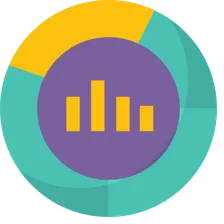Google Translator
Pricing
$6.00/month + usage
Google Translator
Translate any text to any of the supported languages using https://translate.google.com/
Pricing
$6.00/month + usage
Rating
0.0
(0)
Developer

Web Harvester
Actor stats
5
Bookmarked
71
Total users
1
Monthly active users
2 years ago
Last modified
Categories
Share
What does Google Translator do?
This Actor can translate any one or more texts (max 5000 chars each) using Google Translate website, you can:
- Translate a single.
- Translate a list of texts.
- Translate a list of texts, each with it's own translation options
Here's input example in JSON:
For the full list of optional parameters, their default values, and how to set the values of your own, see the Input Schema tab.
Google Translator data output
The output for the translation is stored in the dataset. After the run is finished, you can download the dataset in various data formats (JSON, CSV, XML, RSS, HTML Table).
Output example
Limitations
- Each input text must have a maximum length of 5000 characters.
Integrations and Google Translator
Last but not least, Google Translator can be connected with almost any cloud service or web app thanks to integrations on the Apify platform. You can integrate with Make, Zapier, Slack, Airbyte, GitHub, Google Sheets, Google Drive, and more. Or you can use webhooks to carry out an action whenever an event occurs, e.g. get a notification whenever Google Translator successfully finishes a run.
Using Google Translator with the Apify API
The Apify API gives you programmatic access to the Apify platform. The API is organized around RESTful HTTP endpoints that enable you to manage, schedule, and run Apify actors. The API also lets you access any datasets, monitor actor performance, fetch results, create and update versions, and more.
To access the API using Node.js, use the apify-client NPM package. To access the API using Python, use the apify-client PyPI package.
Check out the Apify API reference docs for full details or click on the API tab for code examples.

